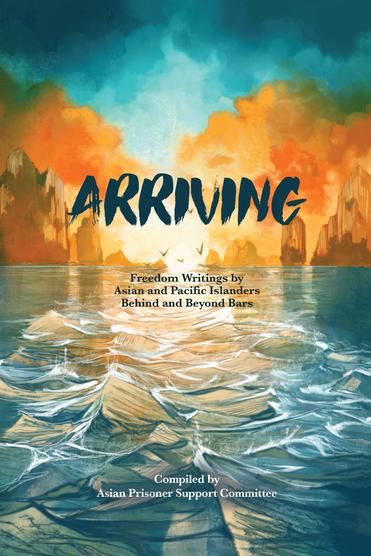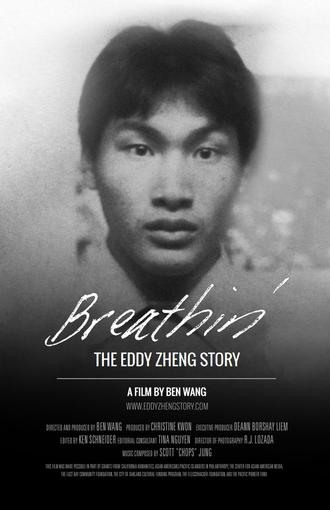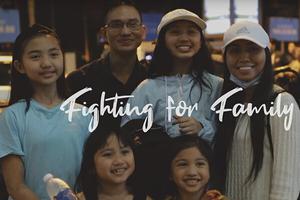CRIMMIGRATION & DEPORTATION IN ASIAN AMERICA
FEATURING
THE ASIAN PRISONER SUPPORT COMMITTEE
A COLLABORATIVE ZINE WINTER 2025

FEATURING
THE ASIAN PRISONER SUPPORT COMMITTEE
A COLLABORATIVE ZINE WINTER 2025
The Asian American Activities Center guest speakers students with support from edited by Thaomi Michelle Dinh
The Asian Prisoner Support Committee
Borey “Peejay” Ai Chanthon Bun
Nghiep “Ke” Lam
Maria Legarda
Introduction to Asian American Studies
Asian American Studies
Student reflections
Recommended reading 4 9 31
Meet the APSC4
Borey “Peejay” Ai Maria Legarda Nghiep “Ke” Lam
Chanthon Bun





As a Community Advocate at APSC, Peejay Ai advocates for policies to end the impact of the migration-to-prison-to-school-todeportation pipeline, leads in coalition spaces to help end mass incarceration, and supports antideportation defense campaigns.
Peejay is one of 4 APSC staff members at risk for deportation. Since his release from ICE detention 5 yrs ago, Peejay has been an invaluable advocate for communities impacted by incarceration and deportation.
“As a young person growing up in prison, no one was there for me. As I got into counseling, I fell in love with it because it’s also healing for me to be able to help someone else.”
“It brings so much hope to know that we all fought for this; we’re not alone.”
NGHIEP KE LAM



As the Re-entry Consultant at APSC Maria Legarda is passionate about women’s rights, ending the deportation of immigrant and refugee communities, and healing the systematic trauma of incarceration. She uses her lived experiences to inform her work and advocacy at APSC.



“The right to live is for every human being. So who gets to dictate that? No matter the status, no matter the color, every person living and breathing has the right to live a safe life with the people they love.”
APSC’s work is directly led and informed by our impacted staff members. Without the invaluable experience of people like Maria, APSC would not be able to successfully serve our community.

MARIA LEGARDA
As the Reentry Navigator at APSC, Nghiep 'Ke' Lam provides reentry support for people returning home after incarceration. Ke aids formerly incarcerated people in seeking housing, enrolling in education opportunities, and providing job assistance and other resources needed for successful reentry.

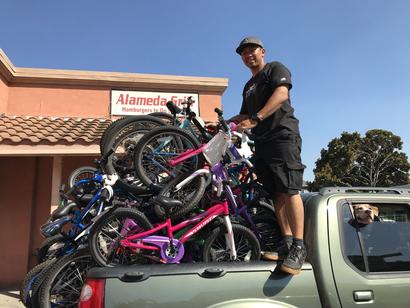

Ke is one of 4 APSC staff members at risk for deportation. Since Ke joined APSC, our org thanks to his leadership, has been able to center the needs of impacted people. Ke is a huge asset to our community, and his crucial work is valuable and needed.

NGHIEP “KE” LAM
“Are we celebrating old cultures and trauma? Or are we celebrating progress and breaking the cycles of harm?”
As the Reentry Coordinator at APSC, Chanthon Bun supports people to enroll in educational opportunities, find housing & employment, and speak publicly about the experiences of incarcerated people and the impacts of incarceration and deportation in the community.
Bun is one of 4 formerly incarcerated APSC staff members at risk for deportation. Bun’s lived experiences and leadership help inform APSC’s work, in which his contribution to our community is truly valuable.


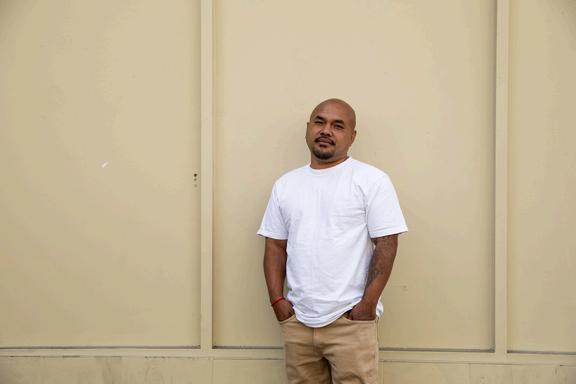
“To live is to hope. For me this means to never give up hope and keep on fighting.”
On Feb 13, 2025, the APSC4 came to Stanford to share their knowledge and experiences with us. Our community reflected on everything we learned from their incredibly powerful stories.



They changed my perspective actually, and I love that, and I’m very happy to have heard from them. As a person from a crime-filled area, I have been raised in fear of so-called ‘criminals’, and my upbringing has, in a way, dehumanized people who are sent to jail. Previously, I viewed those who are sent to jail as deserving of such, and never once questioned what their individual circumstances might’ve been, that would have led them to that situation. I believed that prison institutions were doing a very good thing in putting away ‘bad’ people, and I felt as though they were good concepts because they were keeping dangerous individuals away from my family. But how close-minded that way of thinking is!
Hearing from those four was a wake-up call, to recognize that A LOT of people are overly/wrongfully punished for a small slip-up, or bad judgement call. I was especially intrigued to hear the side of Asian Americans, because for the longest while, Blacks I feel have been portrayed as being wronged by criminal justice systems, but if you really take a look at it: most are.

Many of the speakers mentioned a “veil of silence” and the toll the incarceration process takes on our families. I think the difficult situation that many people face is the balance between protecting your parents by withholding information vs leaning on them for support and promoting open discourse, stepping beyond the “shame.” I wonder what people might think about the context of our previous discussions about “owing” our parents things and stepping beyond the limits of generational trauma and customs.
Also, Maria mentioned how a lot of people fell victim to language barriers, being coerced into signing documents they didn’t know the contents of. I wonder how language barriers would have impacted familial relationships and support for many incarcerated Asian Americans going through this process.
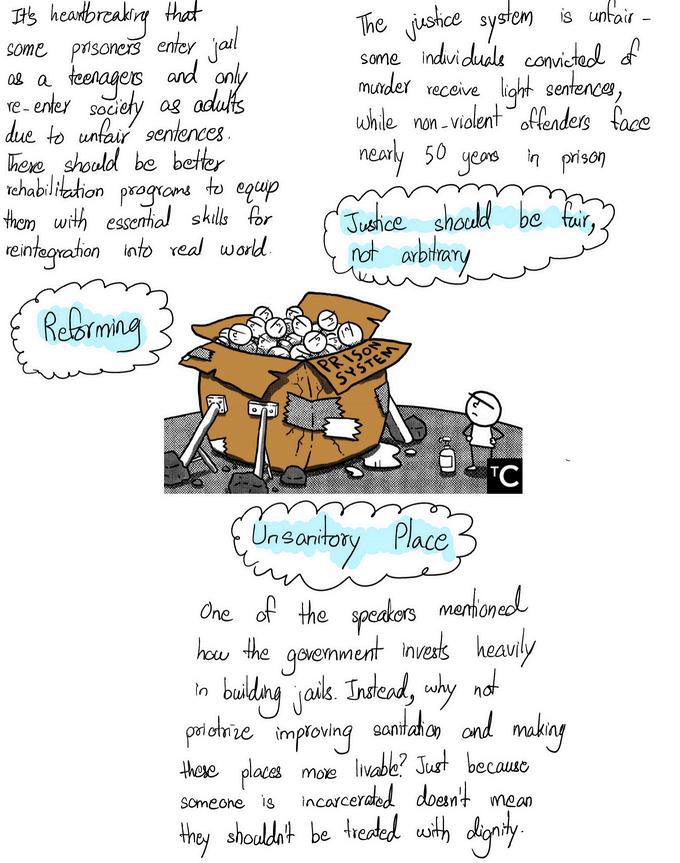
Maria’s story was incredibly sad. Her imprisonment and detention experience was devoid of even an iota of human dignity and respect. She was treated like a number in a database, not like a human.
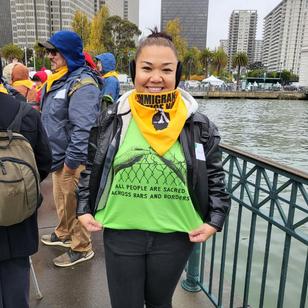
The other's stories were equally sad. Getting 53 years in jail for merely being a lookout for a crime is simply unacceptable and a testament to the failings of the justice system. When Bun asked how long his imprisonment was my initial reaction was 6 months. This was normal; after all a lookout at a robbery should certainly not deserve 53 years. 53 years is what I would expect for grave crimes, involving the life or autonomy of a person.
The format of the teach-in was quite interesting. One of the speakers said something to the effect of, “I find this space where we are together and eating a meal very safe.” Then, in the next 50 minutes, they told incredibly vulnerable stories, stories that touched my very heart and soul. I did expect it to be emotional and heartbreaking, but the magnitude of this was unexpected. Because of this, I understand the importance of abolition and the impact it has on Asians and other people of color. I also understand in a deeper level the massive flaws of the legal system and the importance of fixing them.

I’m surprised that someone who was simply an accomplice in a robbery where no one i

I’m glad that there are programs like APSC spreading awareness about these issues and I think that there should be more programs like it in places with higher immigration communities. It truly is sad to see our country reverting back to antiquated beliefs, and I couldn't agree more with the closing statement of our speakers; we must vote. -KH

It was really surprising to hear that even small crimes can lead to people being deported and they might not even get much help from a lawyer. The Asian Prisoner Support Committee's presentation got me thinking about the under-discussed effects these problems have on Asian American communities. I liked that the teachin included personal stories and discussions. It made it easier to understand and more emotional. -EM
“We were silenced.”
Their pain was visible, even when words failed them.
Freedom isn’t freedom when ICE is waiting outside the prison doors.
Decades lost, only to face another cage.
Maria sat in a deportation center: metal tables, metal chairs, and a guard behind her. The past, inescapable.
“You should’ve known better. You’re Asian!”
A myth, a stereotype, a sentence passed before the trial even begins.
They build prisons just to fill them. What if justice was never the goal?
Mass incarceration is an industry. Deportation is its aftershock.
How do we move past this shame? How do we dismantle what was built to keep us locked in?

I believe the idea of having hope during times of adversity is vital and will help a process of healing and positivity.
During the teach in, some of the main points I took away were how unsanitary the deportation centers were in the US, and also how they were mistreated terribly. As I listened, I was able to connect the ideas a lot to the readings from the prior class. In particular, the “Hope Is Contagious” reading and how having hope in these situations is crucial and relevant. To be so vulnerable and to be so badly mistreated is a terrible thing, that I would not wish upon anybody. But it is these struggles and harsh times, humans need hope. In other words, having faith. It gives people light and something to live for and look forward too. Without it, people can be left in dark places and can suffer even more. In addition, hope is a chain reaction.
MB








It was the first time, I truly understood what it meant to be released from incarceration or an ICE detention center, and it didn't resemble a moment of freedom, but as a continuing struggle. The stigma, and the social barriers, stay with you even after you leave. Families are broken and communities are left distraught.
What really stuck with me was the way these systems intentionally leave you out to dry. The fact that, during COVID, many people in detention were left without medical help just shows how these systems prioritize the unjust “laws” over humanity. It reminded me that abolition isn’t just about getting rid of prisons or detention centers but about fundamentally rethinking how we care for one another.
Hearing about specific cases of sentencing really made me question what we call “justice.” Who gets to decide what is fair? The legal system is framed as objective, but the stories we heard made it clear that laws often uphold a certain norm rather than preventing harm. To hear that “you shouldn’t have committed this crime, you're smarter than that you're Asian,” is absolutely insane to hear in the courtroom.
The teach-in also made me think critically about my own positionality, what is my relationship to these systems? In what ways am I complicit, and in what ways can I actively challenge them? It’s easy to assume that if we aren’t directly affected, we aren’t involved, but this conversation made me realize that everyone is entangled in these structures in some way.


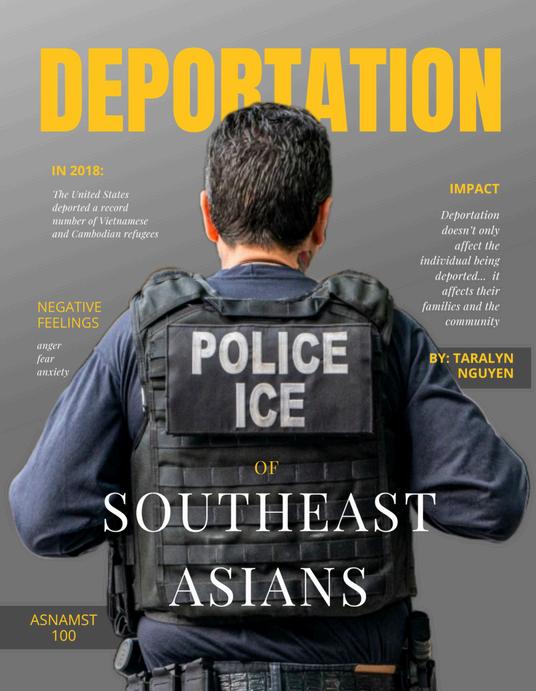
Before this presentation, the thought of prison abolition made me uncomfortable because I was uneasy with allowing those who committed unspeakable acts to fully integrate into society. The more I thought about this, however, I realized that only thinking about the worst-case scenarios was an easy way out for me to stop considering the rest of the experiences of those who were incarcerated. In reality, thoughts like these dehumanize individuals who end up in prison due to the way America has failed them.
I’m grateful that I have an outlet to think more about this issue now because I’m slowly realizing that the concept of punitive justice goes against what I believe is good for humanity.

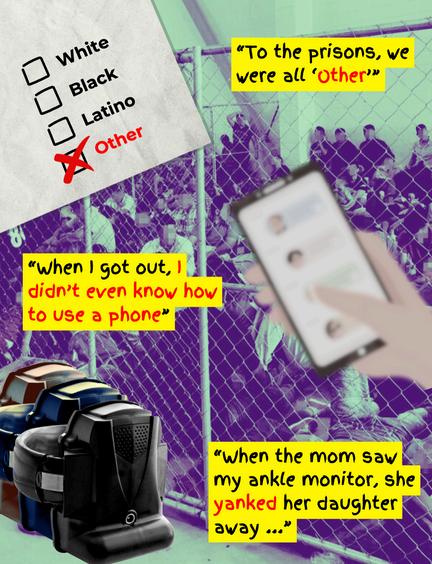

I didn’t know much about the difference between prison and immigration jail, or about how someone could finish their prison sentence and then be immediately detained by ICE afterward like in PJ’s case ... it feels truly sadistic. All these readings really make me think more about the abolition discussions we’ve been having in class. Prison-free futures have been proposed for a while now, but of course not everyone is convinced. I wonder what degree of research / proof / protesting is needed for the government to finally try out abolitionist approaches, even if only on a small scale.



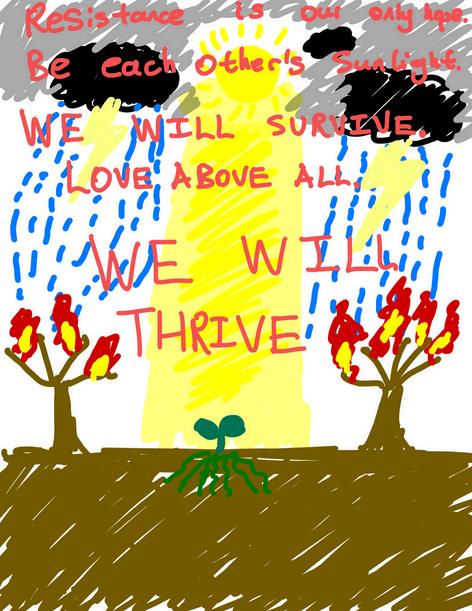



I was really inspired by their imagery of flying birds in their logo.

I wanted to visually embody that bright symbol of freedom against a murky black background.

I found myself full of rage because I grew up thinking that our criminal justice system was supposed to be just and laws are just from my schooling experience. However, it feels like everything I grew up with is becoming more of an illusion and I become disillusioned with the legal system. When one of the guests was talking about their frustrations with the juvenile system and how when they were arrested– not even for the crime itself which was shoplifting but for being on standby with the car, I felt a lot of stress and tension for them. Because they were arrested at an age younger than mine and now they are released at an age that’s around my parents. That means that throughout their entire life, they spend it in a cell and away from their communities, families, and not even had the chance to create a family themselves.
community support is the antithesis to punishment. Instead of having prison as a way to instigate people recieving suffering, I now want to explore a world where there is no prison.
“'Double Punishment': Thousands of Southeast Asian Refugees Face Deportation After Decades-Old Convictions”
We Was Girls Together
Filipinx activism and the fight to keep families together
“Hope Is Contagious”
How I broke the chains of generational trauma
Survived and Punished | Ny Nourn
